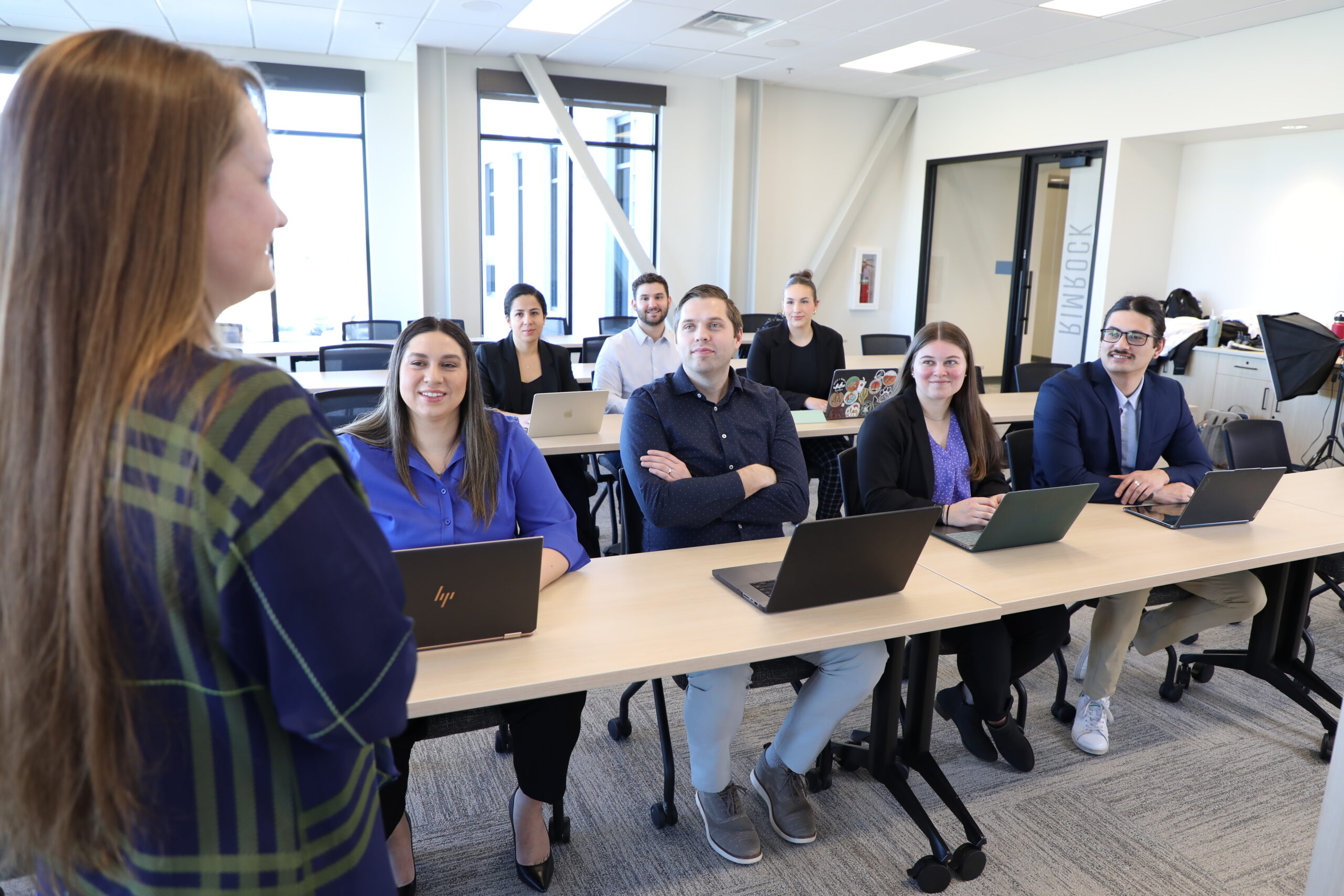This course provides the basis for a successful Master of Medical Sciences (MMS) program experience using teambuilding, interpersonal interaction, reflective practice, critical listening and reading, community engagement, and hands-on skills practice. These foundational principles are critical to future health professional education. Week one includes activities centered on belonging, growth mindset, problem- and team-based learning, wellness, and resiliency. Week two emulates the format of the MMS program and preclinical curriculum with student-directed learning prior to engaged learning sessions (e.g., labs, team-based learning, etc.).
Rocky Vista University – MMS Program Information
Master of Medical Sciences
Why ambitious applicants choose our MMS program
The Master of Medical Sciences (MMS) program at Rocky Vista University is a Direct Pathway to RVU’s Montana College of Osteopathic Medicine. The direct pathway from MMS to RVU-MCOM grants students admissions with:
- No MCAT Retake
- No Additional Prerequisites
- No Interview
- Lower Undergraduate GPA Minimum
10
months
full time, in person, on Montana Campus
42
Total Credit Hours
$28,980
Tuition Total
Get your MMS at Montana’s first ever medical school
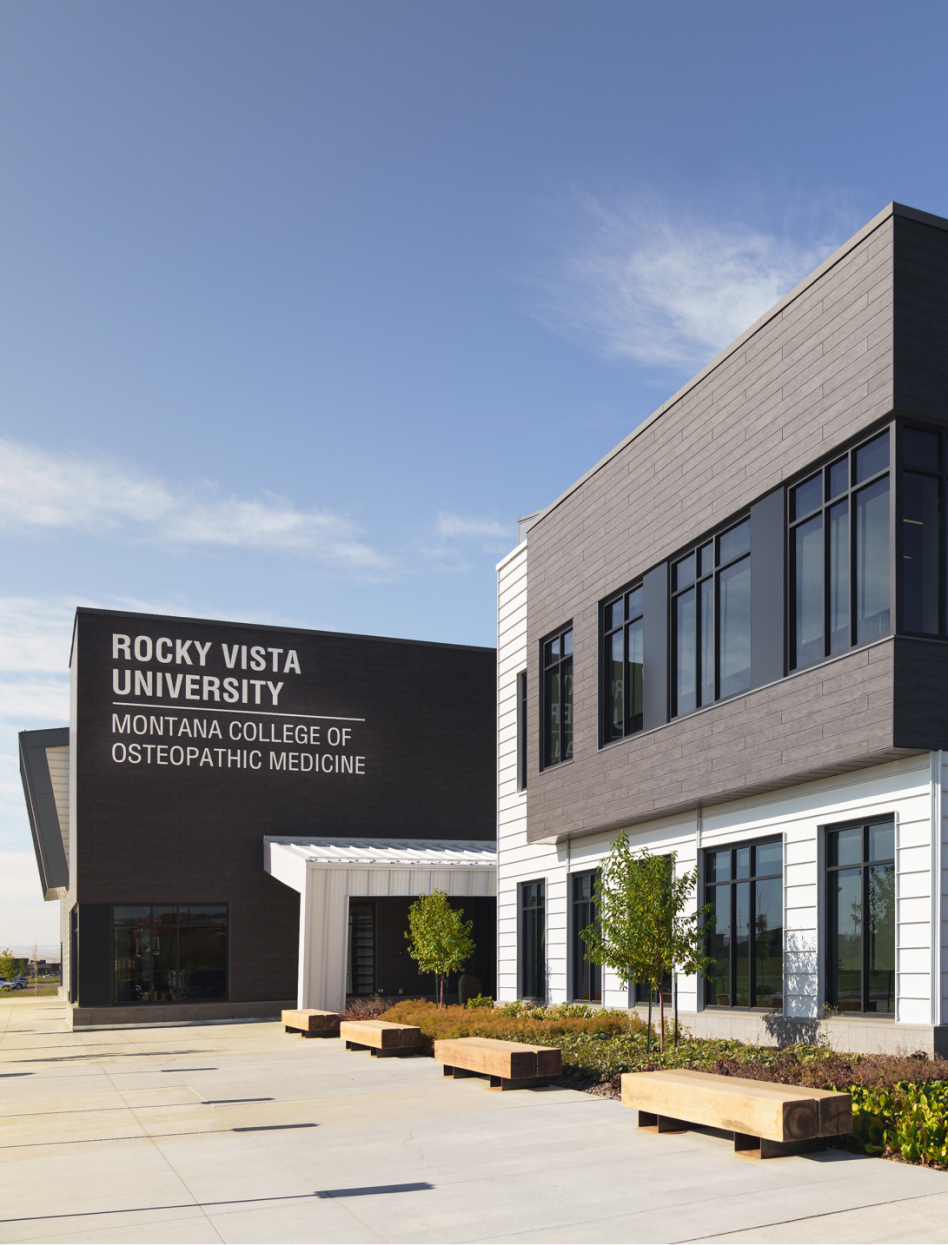
Montana Campus
Montana Campus
Billings, sitting along the Yellowstone River and the famous Rimrocks, is known as Montana’s Trailhead because it serves as the border between western Montana’s mountains and Eastern Montana’s plains and badlands. Billings is an urban city offering modern amenities, exceptional views, outdoor recreation, and award-winning cuisine. Billings is the medical hub for two thirds of Montana and portions of bordering states. Although Billings is the largest city in Montana, it boasts small-town hospitality! Where you can explore recreation, dining, shopping, and events happening in Billings.
Explore CampusProgram Highlights and Goals
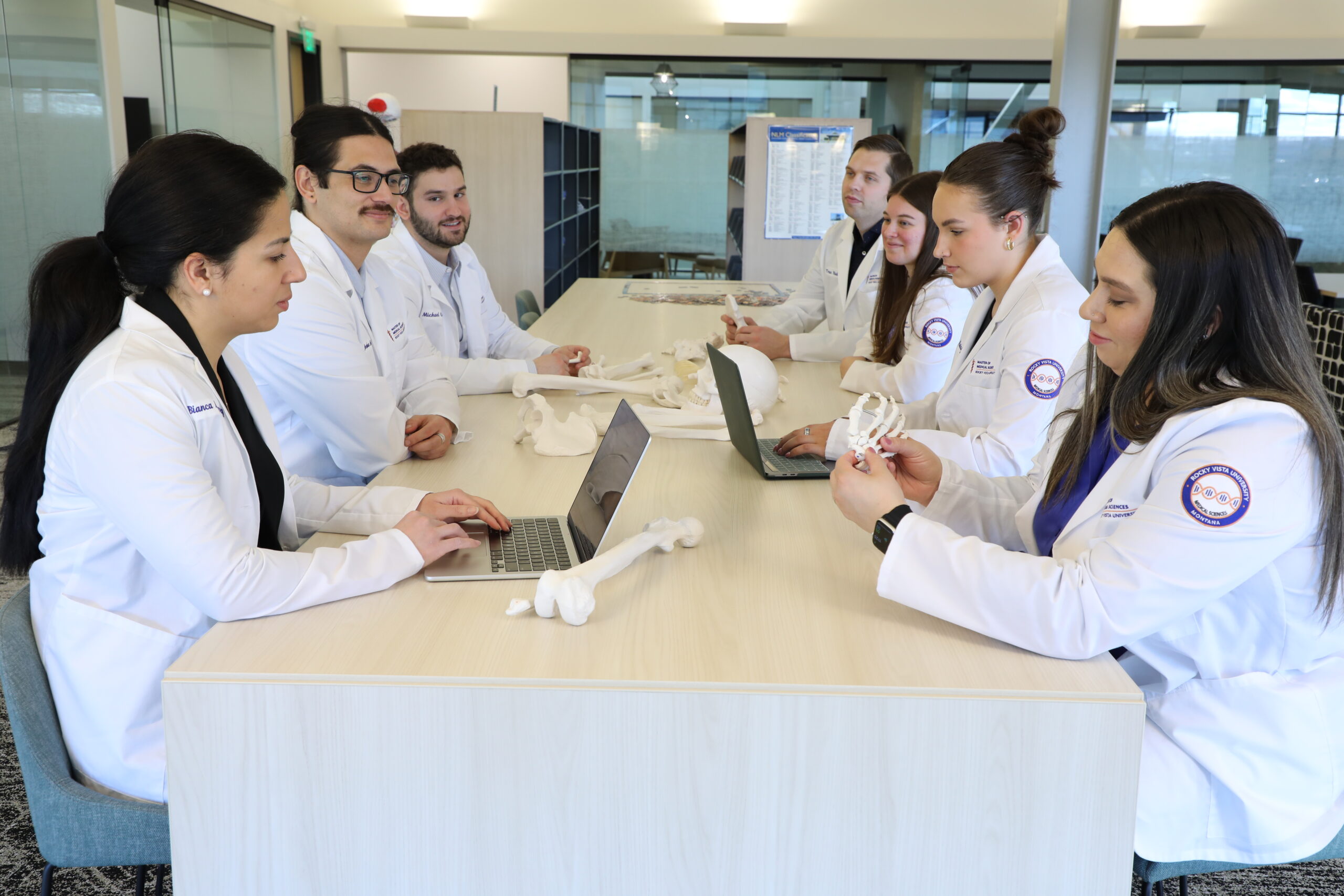
The Master of Medical Sciences (MMS) program has been meticulously designed for students who are dedicated to succeeding in a medical profession but haven’t yet met the requirements to attend a graduate medical program. After 10 months in an immersive medical school environment, you’ll develop a deep foundation that helps prepare you for the Montana College of Osteopathic Medicine (MCOM).
Unique features of the MMS program at RVU:
- Study alongside current first-year medical school students
- Set yourself up for success in medical school or other health professional school
- Gain admission to the MCOM after 1-year program if high standards are met
Together, we will help you learn to:
- Demonstrate biomedical sciences knowledge relating to the normal function of the human body
- Employ the scientific process to conduct biomedically focused scholarly activity
- Respectfully collaborate with diverse constituents, including fellow students, faculty, staff, and the community
- Apply effective communication skills to enable professional relationships
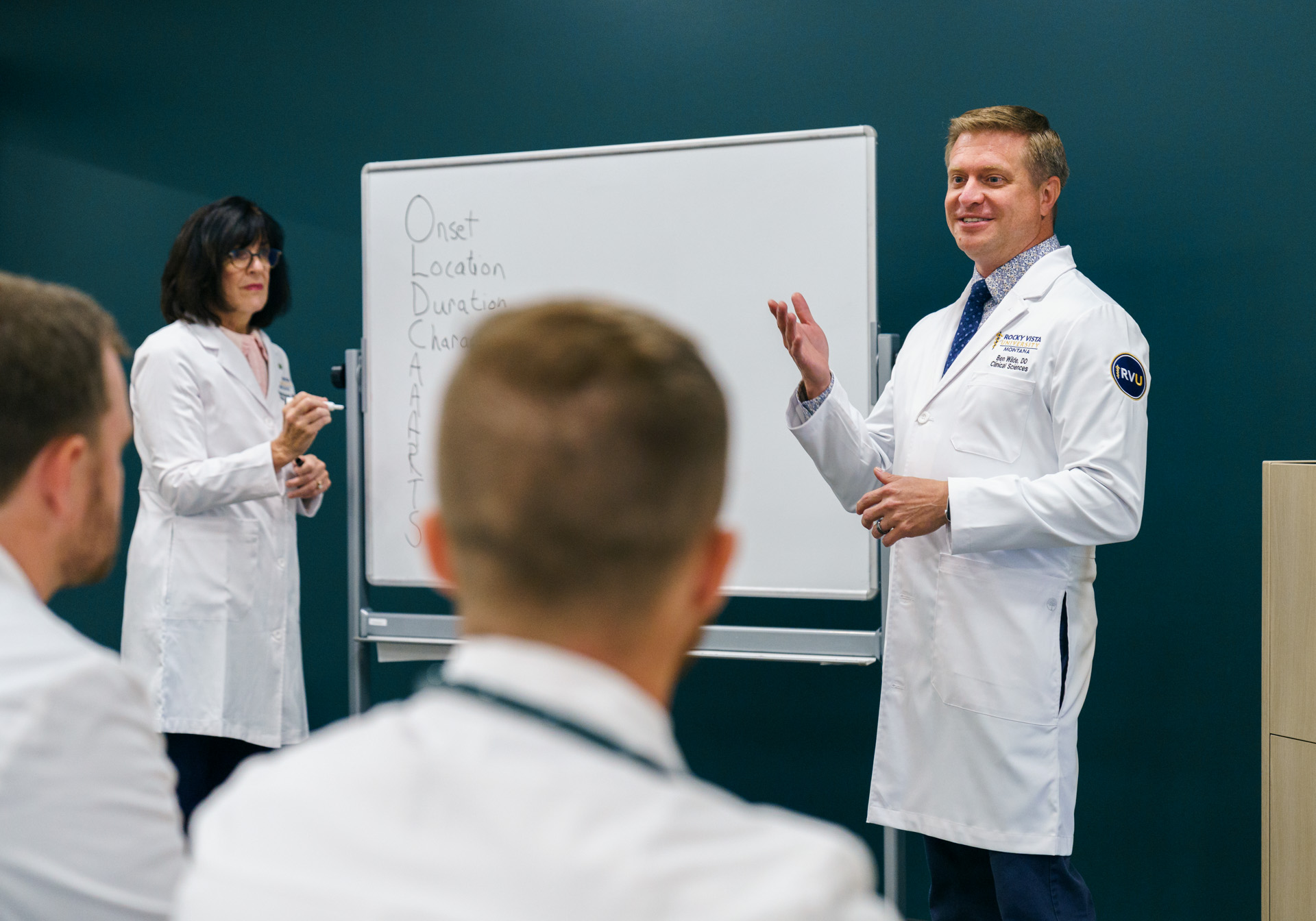
Estimated costs for your MMS Degree Program at RVU
$690 Per Credit Hour (Total $28,980)
Student Health Insurance*: $5,229
*All students are required to have health insurance. Students will be automatically enrolled in and billed for the RVU Student Health Insurance Plan unless they provide evidence of equivalent coverage prior to the waiver deadline date. Please contact the Office of Student Financial Services for more information.
Ready to apply?
The Master of Medical Science Program is currently accepting applications for the 2025-26 academic year. Head to our MMS Admissions page for more specifics on the admissions process.
Application Requirements

Academic requirements for admission to the MMS program will be evaluated on an individual basis by the program administrators. An interview will not be required. The requirements are as follows:
- An earned or expected bachelor’s degree from a U.S. accredited college or university before matriculation into the program
- The program will also consider International Students or students who graduated from a reputable college outside the U.S. Applicants must meet all the international requirements of the RVU Office of Admissions and must demonstrate English language proficiency (interview required).
- Completion of all prerequisite coursework with a grade of ‘C’ or better in each course
- An overall GPA minimum of 2.7 (on a 4.0 scale)
- Official standardized test scores: GRE, MCAT, PCAT, or DAT (others potentially approved upon request
- Two Letters of Recommendation written by individuals who can evaluate the applicant’s background and educational work ethic.
Prerequisites include:
- Biology with lab: 8 semester hours
- General Chemistry with lab: 8 semester hours
- Organic Chemistry with lab: 8 semester hours
- Physics with lab: 8 semester hours
- English Composition or Literature: 6 semester hours
- Social or Behavioral Sciences: 6 semester hours
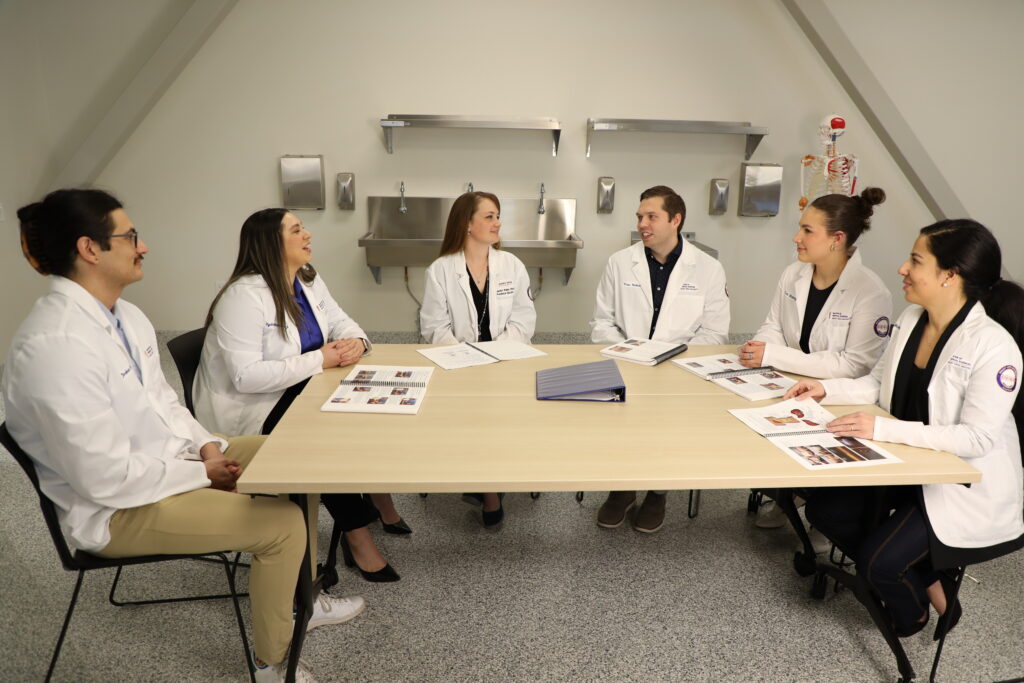
MMS Program Curriculum
Students in the program are immersed in the Montana College of Osteopathic Medicine (MCOM) curriculum, with courses taught by MCOM faculty that cover the normal functioning of the systems of the human body.
MMS: Foundations (2 Credits)
MMS 5511: Service, Reflection, and Scholarship Course I (3 credits)
This course takes place longitudinally across the Fall Semester and will include multiple elements to include reflective practice, physical, mental, and emotional wellness activities, community service, and research. Students will be responsible for finding and setting up a community service opportunity in an approved area of interest. These opportunities should last through the Fall semester but may extend through the entire academic year. Students will be placed in small groups and using skills learned in the Foundations course, will choose, and begin work on a research project for publication or presentation at the annual MCOM Research Day. Expectations are that research projects will be started during SRS 1 and completed during SRS 2.
MMS 5521: Molecular and Cellular Mechanisms (3 Credits)
The Molecular and Cellular Mechanisms course is an intensive course incorporating the fundamental aspects of cell and molecular biology, biochemistry, genetics, research methods, and histology. The objective of the course is to promote student learning of the biochemical, molecular and cellular mechanisms underlying normal development, physiology and metabolism.
MMS 5531: Musculoskeletal System (5 Credits)
The Musculoskeletal System is an intensive multidisciplinary course structured to direct the student to develop foundational knowledge of embryology, histology, physiology, biochemistry, pharmacology, neuroanatomy, and gross anatomy and to understand the normal structure and function of the musculoskeletal system.
MMS 5541: Cardiovascular / Respiratory System (5 Credits)
The Cardiovascular and Respiratory System course is focused on the normal structure and function of the cardiovascular and respiratory systems. It is designed to provide the student with an overview of the cardiovascular and respiratory systems, including histology, embryology, mechanics, and immunology.
MMS 5551: Microbiology, Immunology, and Infectious Disease (5 Credits)
The Hematology/Immunology components of the course emphasize the fundamental knowledge necessary to understand the normal function of hematopoiesis, hemostasis and the immune system. It is designed to provide the student with an overview of these systems, including the aberrant processes that lead to hematopathology and immunopathogenesis.
Microbiology and Infectious Disease provide a foundational introduction to pathogens, pathogenic mechanisms, and infectious diseases. This course covers bacteria, viruses, fungi, parasites, and prions in their roles as infectious agents. The course integrates immunology content and how it relates to the body’s reactions to pathogens. It will serve as a means to migrate from acquisition of basic scientific knowledge of pathogens to utilization of such knowledge in understanding clinical infectious disease processes. You will come to understand the structure, pathogenicity, laboratory findings, and clinical aspects of numerous pathogens. Throughout the course, the language of medicine is emphasized in conjunction with etiologic mechanisms, clinical features, differential diagnoses, and morphology. This course includes introductory pharmacology of antimicrobials in order to facilitate discussion of infectious disease diagnosis and treatment. In addition, important aspects of clinical laboratory involvement and data utilization in the diagnosis of disease are discussed as appropriate.
MMS 5512: Service, Reflection, and Scholarship Course II (2 credits)
This course takes place longitudinally across the Spring Semester and will include multiple elements to include reflective practice, physical, mental, and emotional wellness activities, community service, and research. Students will be responsible for continuing a community service opportunity in an approved area of interest. Students will continue work on a research project for publication or presentation at the annual MCOM Research Day. Expectations are that research projects will have been started during SRS 1 and completed during SRS 2.
MMS 5565: Gastrointestinal/Renal System (6 credits)
The Gastrointestinal/Renal System Course is an intensive multidisciplinary course, designed to provide requisite knowledge necessary to understand the normal structure and function of the entire gastrointestinal, hepatobiliary, and renal system to include anatomy, histology, and physiology of primary gastrointestinal and renal processes.
MMS 5581: Endocrine / Reproductive System (4 credits)
The Endocrine System is designed to teach the basic principles of hormone secretion and action related to the major endocrine structures and systemic tissues. Students are expected to be familiar with the structure and function of the major endocrine glands and the action of the major hormones secreted. This course will focus on the anatomy, histology and physiology of the endocrine system. The Reproductive content is designed to teach the basic principles of hormone secretion and action related to the major reproductive structures and systemic tissues. Students are expected to be familiar with the structure and function of the major reproductive organs and the action of the major hormones secreted. This course will focus on the anatomy, histology and physiology of the reproductive system.
MMS 5591: Neuroscience System (7 credits)
The Neuroscience System presents the student with an intensive introduction to the: 1) Central Nervous System (Brain and Spinal Cord) and 2) Head and Neck anatomy. The central nervous system portion of this course addresses the following topics in integrated fashion: Neuroanatomy, Neurophysiology, Neurohistology, Neuroembryology, and Behavioral Neuroscience. The studies of Neuroscience and of Head and Neck anatomy are bridged by the cranial nerves which begin in the central nervous system and distribute throughout the head and neck.
MMS Technical Standards
Rocky Vista University (RVU) maintains a strong institutional commitment to equal educational opportunities for qualified applicants and students with disabilities. We collaborate with students to develop innovative ways to ensure accessibility and strive to create a respectful, accountable culture through our confidential and specialized disability support. Technical standards are required to engage in the program fully. Students’ competency related to learning objectives throughout and pertaining to their level of education will be addressed by the individual program.
Your goals await at RVU
Contact the Office of Admissions
Montana Campus
4130 Rocky Vista Way
Billings, MT 59106
406-901-2700
For faster response, please direct inquiries to: [email protected]
